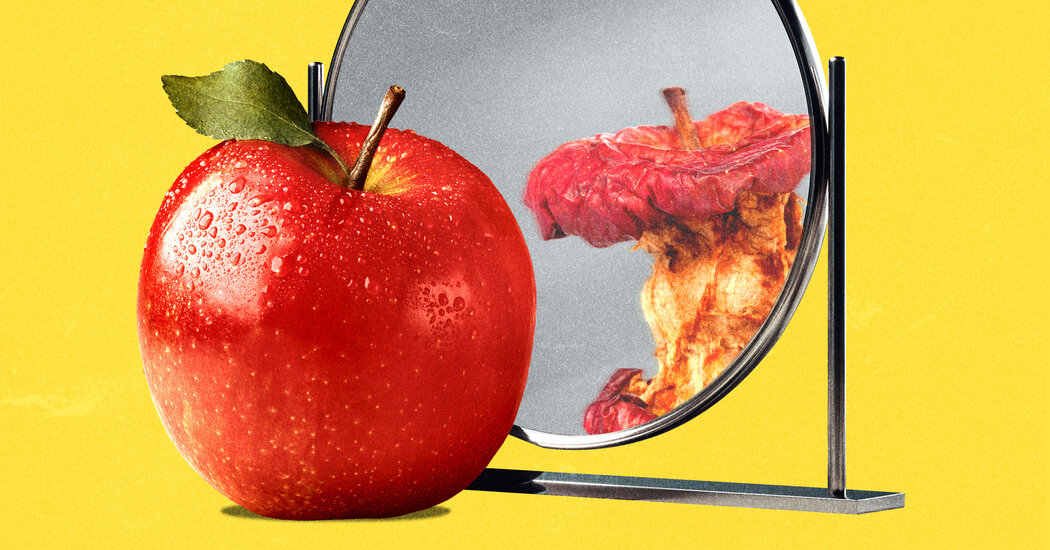Remember “American carnage?” Donald Trump’s 2017 inaugural address was peculiar in many ways, but one of the most striking oddities was his obsession with a problem — urban crime — that had greatly diminished over the past generation. For reasons we still don’t fully understand, violent crime in America fell rapidly from around 1990 to the mid-2010s:
[Image]
True, there was a crime surge after the pandemic, which now seems to be ebbing. But that lay in the future. Trump talked as if crime was running rampant as he spoke.
Yet if Trump had false beliefs about trends in crime, he had plenty of company. Gallup polls Americans about crime every year, and all through the great decline in violent crime a majority of Americans said that crime was increasing:
Were the crime statistics misleading? Homicide numbers are pretty solid. And people behaved as if crime were falling; notably, there was a wave of gentrification as affluent Americans moved into newly safe central cities. But all the same, people told pollsters that they believed crime was rising.
Why am I talking about public perceptions of crime? Well, last week, I wrote about the gap between public perceptions of a terrible economy and the reality of an economy that is doing very well by normal standards. I also noted that Americans seem relatively upbeat about their own financial circumstances; they just think that bad things are happening to other people.
Not surprisingly, I got a lot of pushback. That’s OK; after all these years writing for The Times I have a pretty thick skin, although I have to admit to being annoyed at pundits who try to cut off discussion by asserting that anyone who questions widely held beliefs is an “elitist” who thinks Americans are stupid. For the record, I don’t think Americans are stupid. I think they have jobs to do and children to raise and lives to live. They don’t have time to study policy issues, so most of them get their sense of what’s happening to the country from what they see on TV or hear from politicians. Unfortunately, some of what they’re told isn’t true.
But in any case, I thought it might be useful to draw parallels with the discourse on crime, where there is a similar disconnect between what people tell pollsters they believe is happening and what the available facts say. In fact, the resemblance between how people talk about crime and how they talk about the economy is eerily strong.
Many of those talking about a disconnect on views about the economy cite, among other sources, Federal Reserve data that compares household views of their own financial situation with their views of the economy (highlighting added):
[Image]
Notice that the survey also asks people about the state of their local economy, where they are likely to have at least some personal experience of what’s going on; these views are much more favorable than their views of the national economy. Now look back at that chart on perceptions of crime. Gallup also asks Americans about crime “in your area,” and sure enough, people’s perceptions of local crime were much more favorable than what they said about the nation as a whole.
Wait, there’s more: Perceptions of crime, like perceptions about the economy, have become strongly partisan, with people becoming more pessimistic when the party they don’t support holds the White House:
And there are huge partisan gaps in assessments of how safe cities are:
As it happens, the Republican perception of Los Angeles and New York as unsafe compared with southern cities is wildly off base. Both have low homicide rates — half as high as Miami’s — and New York City is overall one of the safest places in America.
What does all this tell us, besides the fact that Americans are very confused about crime? It shows that on an important public issue, people can hold beliefs about what is happening to other people — people who live in other places, or in the nation as a whole — that are not just false but also at odds with their personal experience.
Why should this kind of disconnect be restricted to crime? There are, in fact, strong reasons to believe that there’s a similar disconnect when it comes to the economy. And we shouldn’t be afraid to say that out of fear that we’ll be considered elitist.



And right there nuzzled into the last two sentences it is. NYT telling us how wonderful the economy is, just look at these statistics! Let’s not consider how much of folks income goes to housing and food, NYT just wants to talk about the economy in broad strokes because all the profits from squeezing you plebs looks great on this graph.
All these words saying “oh there’s totally statistics that back up that things are actually good” without ever citing them.
Income inequality is at an all-time high. Full-time minimum wage is not enough to afford an apartment anywhere in the country. Homelessness is rising. Red states are rolling back child labor laws. House prices, rent, health care, education, and other items have been inflating much faster than wages for my entire life. The only positive metrics you can find are for owners of capital investments.
Don’t call Krugman an elitist though, it hurts his feewings.